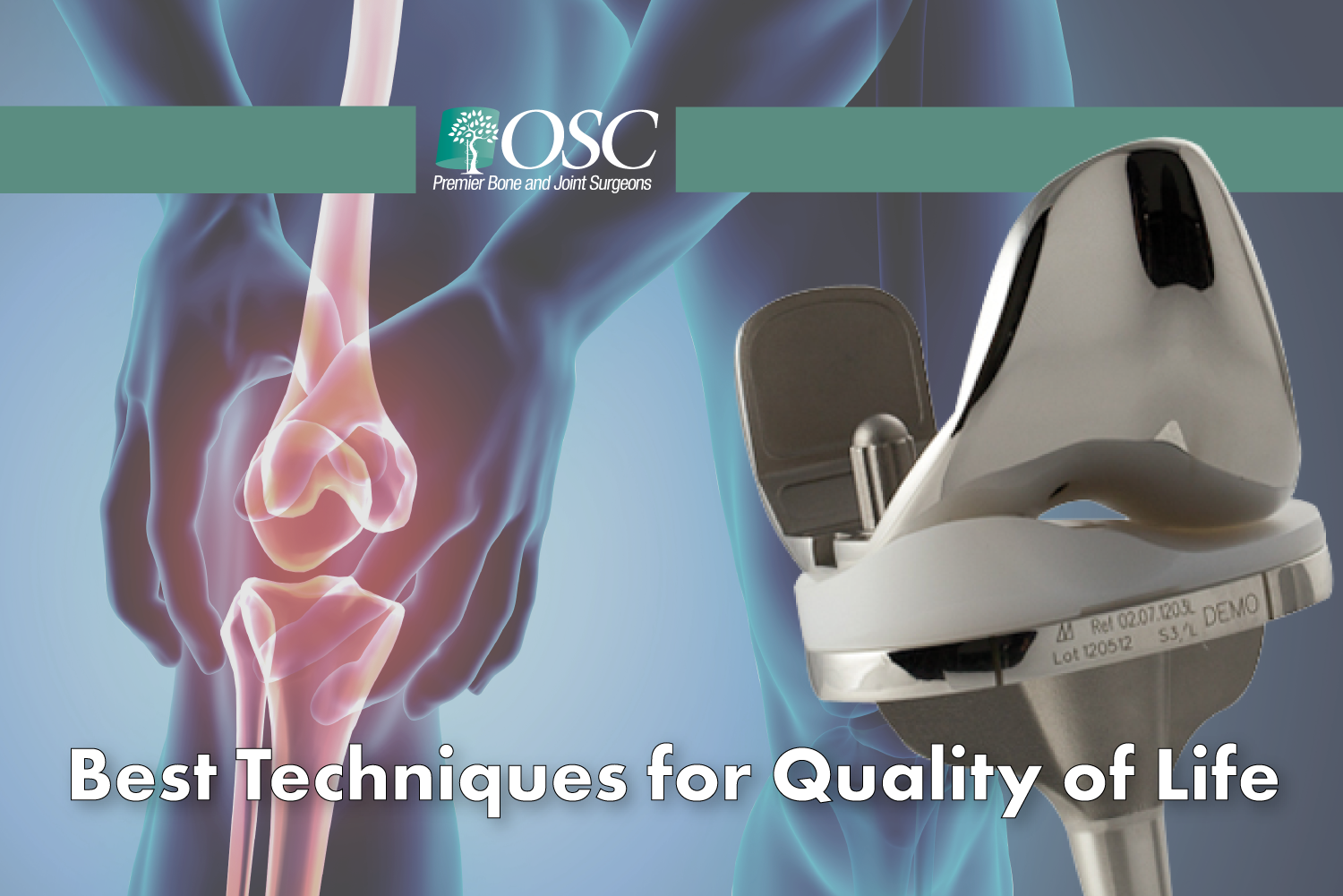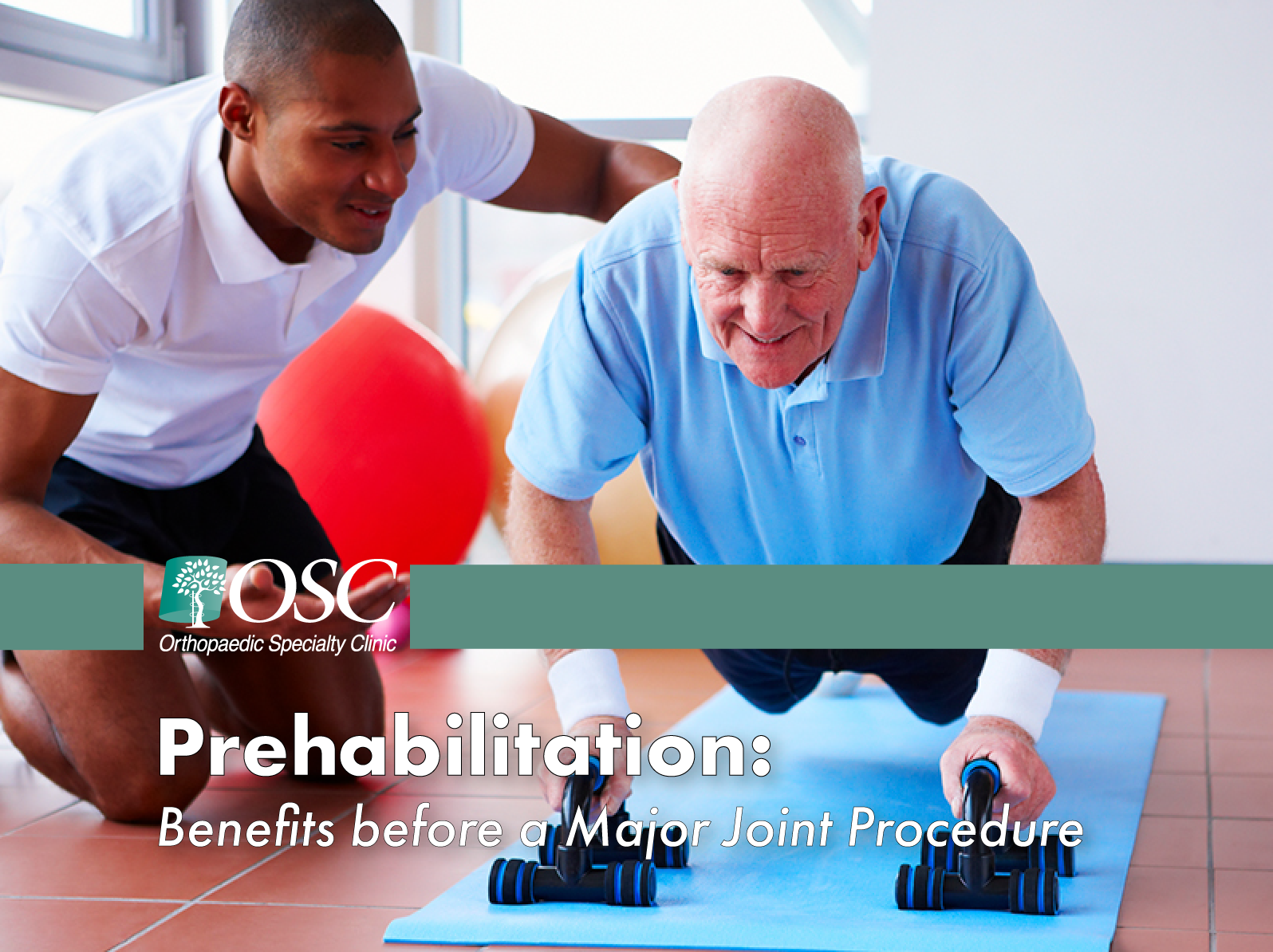
New Year’s resolutions don’t work. In fact, only 8% of those seeking to make a change in the coming year will actually stick with their resolution.
Why is that?
It’s because, too often, goals aren’t simple or tangible enough. Resolutions like losing weight or quitting smoking are among the biggest failures each year because they aren’t actually things you can do in one step: they are the final outcomes of simple and tangible habits.
It’s great to dream big, but when it comes to achieving big resolutions, it’s important to have small stepping stones along the way to the larger milestone.
Most would agree that our overall health should be one of those milestones. Although the world of orthopedics is primarily about joints and bones, the way that we treat our bodies can have a huge effect on the skeleton system over time. True health is about having harmony throughout your entire body and all aspects of your life.
With that in mind, here are 10 simple and tangible ways that could bring big changes to your health in the coming year!
1. Stay Hydrated
Every system in the human body requires hydration. Your joints are no exception. The synovial fluid that is found in the joints is mostly water. Staying hydrated gives your joints several advantages. Water helps maintain adequate blood volume that, in turn, helps nutrients move through the blood and into the joints.
There is no magic number for how many glasses of water you should be drinking. Four to six glasses per day is still a standard to shoot for, but in reality, each body is different and each activity can require more or less water. If it’s hot outside and you’re active, you’ll need to drink more as opposed to a restful afternoon indoors. Pay attention to your body and don’t ignore the signals to hydrate, like thirst and dry mouth.
Another thing people often don’t realize is that food is a major factor in staying hydrated. Eating hydrating foods like watermelon, lettuce, celery and cucumbers works with the body to not only hydrate but to regulate fluid levels as well. About 20% of your water intake comes from food. Foods high in sodium content will end up retaining water in your body and leading to dehydration faster.
2. Get More Sleep
More and more research is showing that sleep is foundational to our good health. Irregular sleep, lack of sleep and poor quality sleep all have serious consequences over time.
One recent study conducted by the University of Pennsylvania discovered that patients placed into sleep-deprived conditions gained significant weight while participating in the study while those who were well rested maintained a healthy weight.
Keep it cool
Before your head hits the pillow, turn down your thermostat a few degrees. Your body temperature drops slightly as you sleep and if the house is too hot, it may interrupt your natural sleep cycle. Although every person has a different point that is optimal for sleeping, somewhere between 65 to 72 degrees is recommended. The important thing is to be aware of how important a role that temperature plays in getting and staying asleep. Once you discover your zone, stay with it!
Turn off the Devices
This is something our ancestors didn’t have to think about and got much better sleep because of it! Limit screen time prior to bed and make sure to turn off or remove electronic devices from the bedroom so that your sleep isn’t disturbed.
3. Focus on Gratitude
In recent years, there has been plenty of research suggesting that being positive and staying grateful actually has a physical effect on the body. Gratitude has been linked to a healthier immune system, a healthier heart, and stronger relationships.
It’s more than just in your head, though.
The simple act of thinking about what you are grateful for releases the neurotransmitter dopamine, which is responsible for pleasure, into your brain, which has an instant effect on improving your mood.
4. Quit Watching TV
Every hour we spend in front of a screen is an hour not spent not connecting with others. Part of living a healthy life is having regular human experiences with friends and loved ones.
Not only does television encourage inactivity (see “Yes, sitting is the new smoking. Here’s what you can do”) but it tends to program our thoughts and attitudes towards the world in a negative and unrealistic way. Rather than forming opinions through experience and human interaction, we tend to shape our beliefs around what is presented to us through media and advertising.
If you’re skeptical, just try it. Limit or remove screen time from your normal routine and replace it with another activity, something mentally engaging like reading a book or talking to a friend and see if you feel better. Chances are that you will.
5. Walk…A Lot
This is a prevalent misconception that in order for an exercise to be effective, it has to be strenuous. This is not the case at all. Walking can have a bigger impact on disease risk and various health conditions than just about any other remedy that’s readily available (see “Staying Healthy is a Walk in the Park”).
Walking is a simple way to get rid of those extra pounds too. A University of Utah study in 2014 found that for every minute of brisk walking that women did throughout the day, they lowered their risk of obesity by 5%.
Walking also improves your mood. A number of studies have found that it can be as effective as drugs for treating depression.
6. Snack Often
Eating small, frequent snacks keeps your metabolism revved up and helps normalize blood sugar. Hunger can throw your body into famine mode, which slows metabolism and makes it easier to pack on the pounds.
Remember to think of food as fuel.
Foods like nuts, vegetables, and fruit along with high fiber carbohydrates are the fuel that will keep your body running for hours between snacks and meals.
Eating frequently helps keep your metabolism burning and avoids blood sugar crashing and storing food as fat storage. It also keeps away that afternoon drowsiness that comes from overeating at lunch.
7. Manage Stress
Stress is a normal part of life. In fact, It’s a foundational part of human survival. Without stress, we wouldn’t know when to adjust our actions and attention onto potential threats.
Stress keeps us alert and responsive in times of uncertainty. There is nothing wrong with allowing stress to motivate us to take action if those actions help to eliminate the source of stress.
Stress only becomes destructive when we face continuous challenges without relief of rest between challenges. In modern times, rather than facing predators or prevailing hunger, our stress is less identifiable, making it difficult to manage. Fear of deadlines, performance reports, and persistent anxiety can take up permanent residence in our brains that were designed to handle stress only temporality.
The result of unmanaged stress can play a part in problems such as headaches, high blood pressure, heart problems, diabetes, skin conditions, asthma, arthritis, depression, and anxiety.
It’s estimated that 75% to 90% of all doctor visits are a result of unmanaged stress.
Exercises like yoga, running, walking, swimming, and cycling can be positive ways to beat stress.
Something as simple as breathing deeply can have a noticeable effect on stress. Many people also report success through mindful meditation.
Also, remember to laugh, it’s no joke.
Your body changes physiologically when you laugh. You stretch muscles and your pulse and blood pressure go up, similar to exercise. Breathing faster, more oxygen distributes to body tissue and has a relaxing effect on the body for up to 45 minutes.
8. Cook Your Own Meals
According to new Johns Hopkins Bloomberg School of Public Health research, people who cook meals at home eat healthier and consume fewer calories than those who cook less at home.
This really isn’t that surprising considering that cooking at home can give you a sense of control and ownership of your food. Taking control over your own meals might make you think twice before adding unhealthy ingredients like processed sugar or refined flour.
And not only will you lose extra weight, you’ll save money too, which is a win-win for anybody.
Think About Stepping Stones, Not Mountian Tops.
This year, instead of making a big change, make a few smaller one’s instead. You might be surprised how far they might take you. Consistently meeting small, attainable goals will give you the confidence and inspiration to continue in whatever direction you’re moving in the New Year and when that direction is towards better health, you just might find that moving is the most important part.




